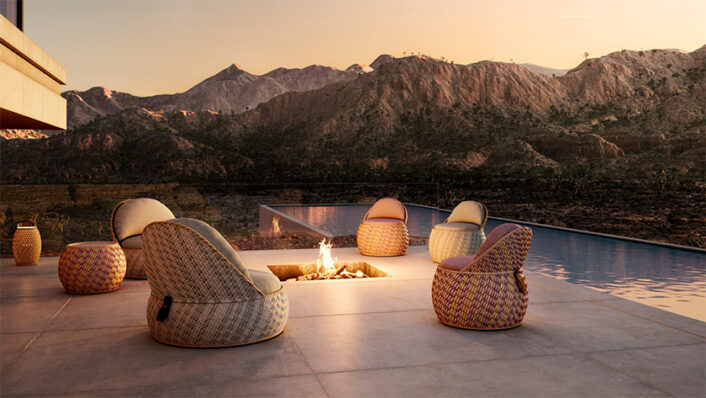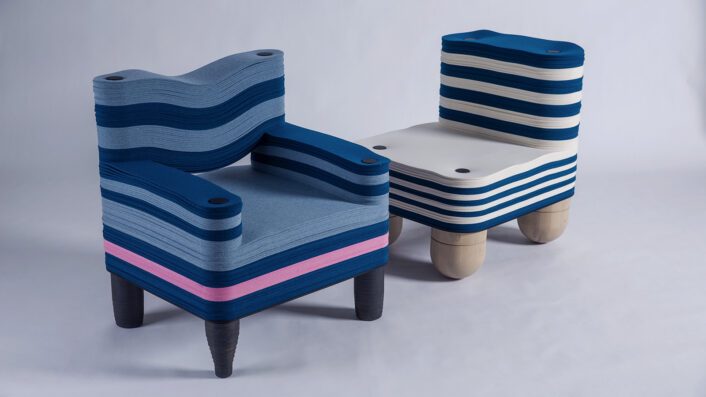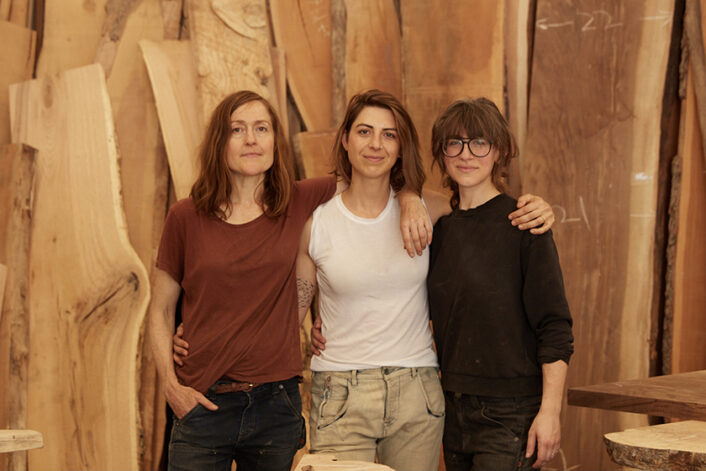Design
MasayaCo- colorful sustainability
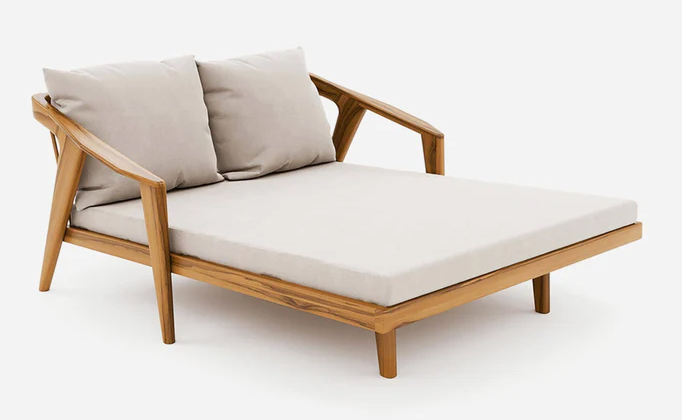
The beautiful Fortuna Daybed shown in teak.
Image courtesy of MasayaCo
MasayaCo was founded with the hope of creating a socially and environmentally sustainable business. The company strives to make a difference… this is something that was vitally important to the founder, Aram Terry. After finishing his Peace Corps assignment in Nicaragua, Aram was well-versed in the country’s abusive forestry practices. He decided he needed to use this knowledge for something good.
In 2008, Aram and his partner Michael founded Maderas Sostenibles. The company included tree farms on deforested land and the utilization of the wood felled after Hurricane Felix. Understanding the wide breadth of artisanal talent in Nicaragua and familiar with the country’s natural beauty, Aram and Michael felt as though they could make a difference in the country by (courtesy of Firepot Nomadic Teas) “repairing, restoring and reviving the forests for future generations.”
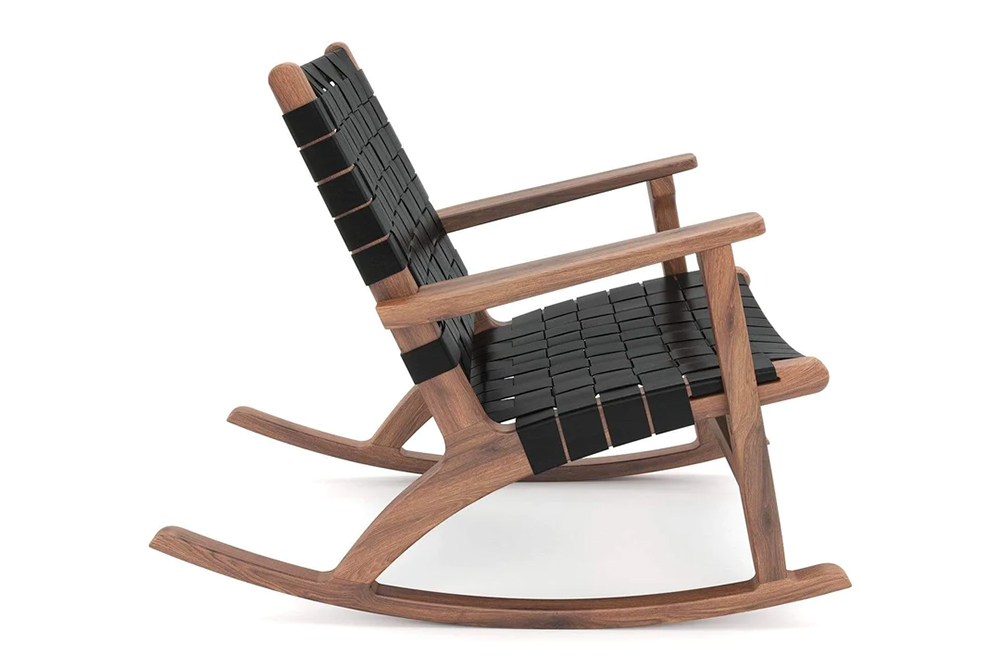
Masaya Rocking Chair in teak with handwoven black leather.
Image courtesy of: Ethos
Today, Maderas Sostenibles manages well over 1,000 acres of newly re-forested land which is able to provide long-term sources of timber including mahogany, Spanish cedar, teak, rosewood, and a number of other important hardwood species and other agricultural products. Working with locals, the forest is continuously replenished and the harvests are always sustainable.
In 2012, Aram and Michael opened a brick-and-mortar carpentry store and mill in Managua, Nicaragua’s capitol city. With a presence in the capitol, they were able to use their sustainably-harvested wood to create furniture designs. As their ethos became well known, their business began to grow by leaps and bounds.
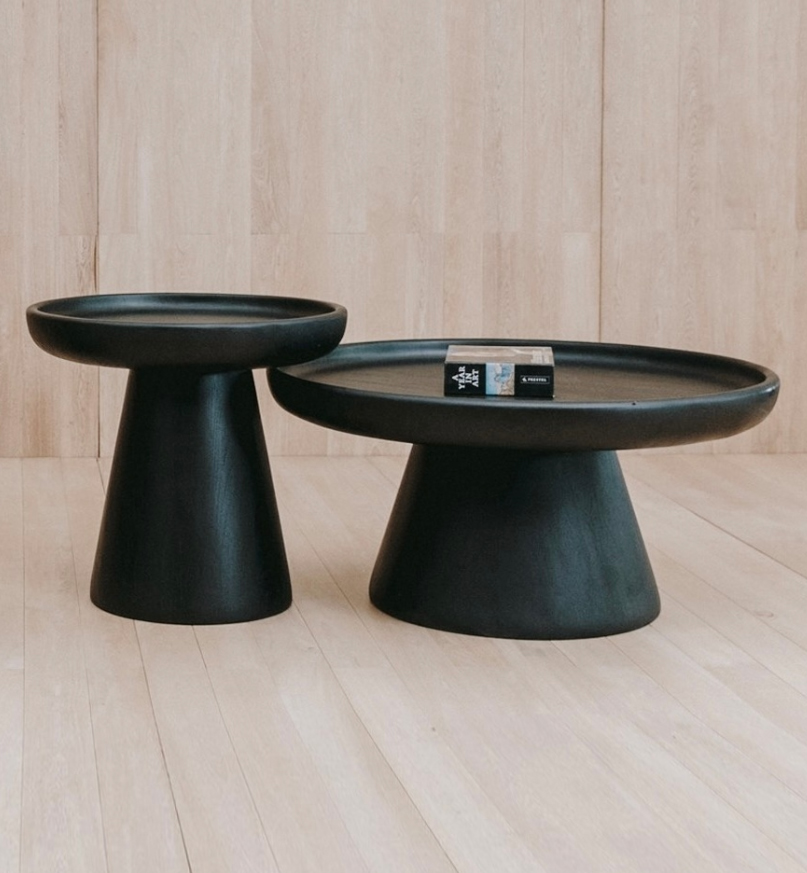
Batea side tables in burnt teak.
Image courtesy of: MasayaCo
Partnering with an American artist, Justin Terry, and a Nicaraguan designer, Abril Zepeda, Aram has seamlessly elevated his designs. Never far from his mind is the rich culture and the gorgeous wild nature of Nicaragua… those are aspects that serve as Aram’s daily inspiration.
Working with local Nicaraguan artisans from Managua, Nagarote, Masaya, and La Paz Centro, MasayaCo’s heirloom pieces include furniture for the entire house. The company’s craftsmen always handmake the frames prior to wrapping them in the material of choice that is handwoven.
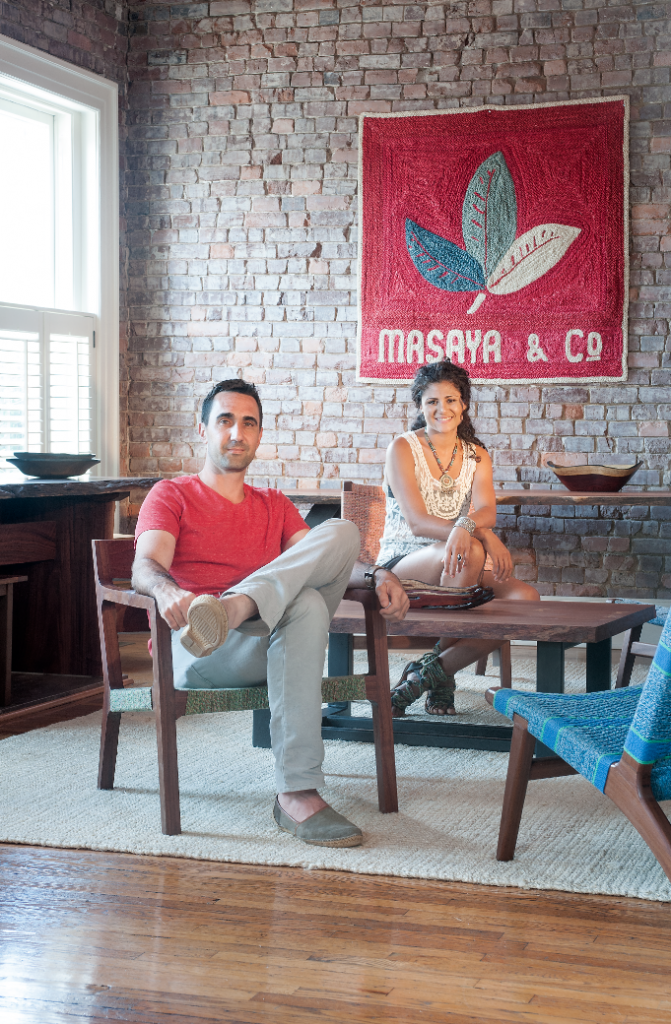
In Nashville, Aram Terry and Abril Zepeda are both business and life partners.
Image courtesy of: Nashville Arts
For each chair sold, the company has committed to planting 100 trees; this helps MasayaCo advance their sustainable model. So far, the company has planted more than 1,200,000 trees! The company remains steadfast in reforesting land that has been abused. An example of such is land that was used for cow grazing where the actual land was not suitable for pasture.
Each parcel of land has a natural use: some land is naturally forest, while other land is naturally prairie. When humans use land in a way that artificially alters it, that forces an unnatural use of the land. MasayCo’s business model that (courtesy of the company’s website) “includes the reforestation of these degraded lands and restoration of the forest, which is the natural use. Our harvesting methods are selective and sustainable. We are continuously replanting to sustain the forest, because the forest is our passion.” Thus, the “Seed to Seat” plan.
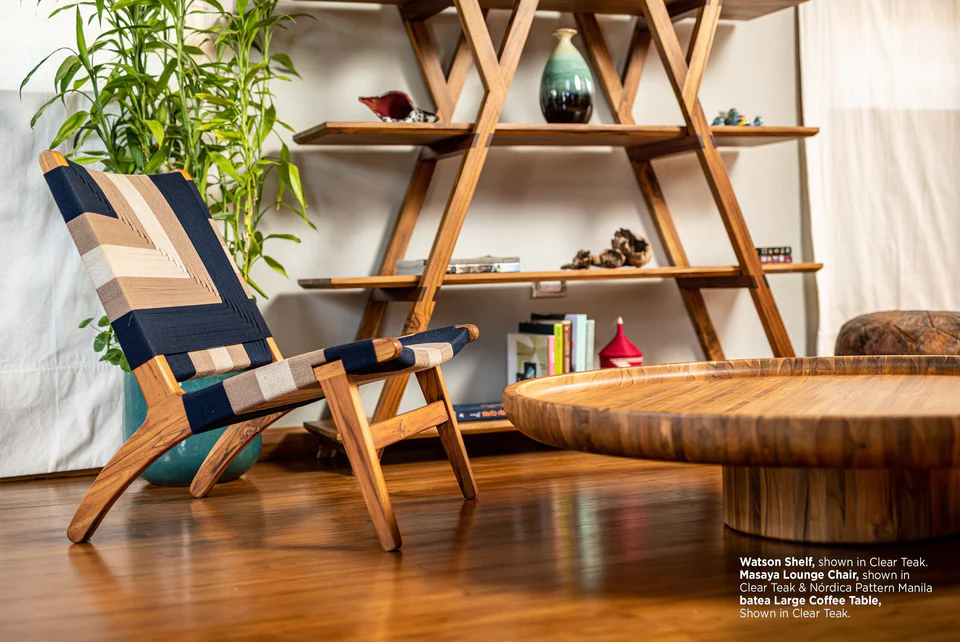
The Masaya Lounge Chair in Teak with Nordica patterned handwoven seat and back. Shown with the Watson Shelf and the Batea Large Coffee Table.
Image courtesy of: MasayaCo
Aram does a great job of explaining his company (courtesy of an article from Nashville Arts, written by Stephanie Stewart Howard), “I think the designs we offer are very different than most of what’s available commercially here. They’re colorful, intricate, distinctive. I also think customers truly appreciate our level of sustainability. We plant 100 trees for every single piece we sell. We’re at about 130,000 this year already. Our oldest trees are eight years old now; we’ll do some small thinning next year, and those trees will go into our furniture—maintaining a forest creates a positive cycle that keeps growing.” He continued, “Most of the furniture you buy right now is manufactured in places like China, and the components are shipped from all over the globe. When you buy from us, you know where it all comes from. That’s the benefit of an integrated company like ours.”
